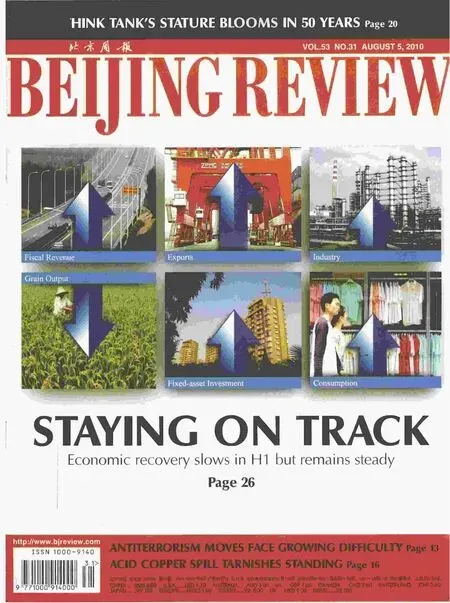The Dust Settles
By DAVID SPARKES
The Dust Settles
By DAVID SPARKES
I think my Beijing sleep patterns are nearly back to normal. It has taken a few weeks, but in the wake of the world’s greatest sporting event, the need to pass entire work nights without slumber has become a distant memory.
For expats in Beijing, the World Cup soccer tournament was a tough haul: an extravaganza of late nights, sweaty crowds,rampant patriotism, social gatherings at a time and place unspoken but accurately assumed, consoling hands lightly placed on the shoulders of devastated friends and, inevitably, bleary-eyed walks home as birds sang in the pale dawn of a 4:30 fi nish.
No more. Foreigners have now returned to the old patterns of Beijing’s summertime nightlife. Cheap, street-side bars are out of vogue now, their makeshift television screens packed away.
Trendy, overpriced rooftop clubs are back in style. Going out on a Saturday night in shabby, unkempt clothing, considered normal a few weeks ago, is once again frowned upon. We are back to ironed shirts, summer frocks and the other fashion choices that mark the Beijing expat’s quest for status.
Like most foreigners in this town, I was happy for the soccer tournament to take control of my existence, despite the reality of China’s time zone in relation to South Africa.But in the dying days of the tournament, my mood was something along the lines of, “OK,I love this game and will stick it out to the fi nal, but Dear God, please let it be over so I can get back to normal!”
I began to pine for the Beijing nights I had fallen in love with over the past year—nights of pure socializing.
And yes, I wanted to sleep.
Halfway through the tournament, a couple of my North American buddies quietly began complaining about the all-consuming nature of the event. Not football fans, they wanted to enjoy the occasional game, get into the spirit, but still live their usual lives.They lamented what they saw as the killing of Beijing’s social scene. They longed for the chaos of unplanned soirées, and the art of conversation with a person looking you in the eye rather than at a big screen. “Nobody talks anymore!” bemoaned my housemate.
I was loving the games, but I saw their point: We all wished for the return of our Beijing nightlife.
Be careful what you wish for—you just might get it.
Three weeks into normality and I am not sure what “normal” is any more. There still seems to be an invisible hole where the soccer tournament was. On Saturday night, I went with a big group to an excessively fashionable rooftop bar in Chaoyang District. Its combination of extortionate prices, fake Greek pillars, tropical palm trees and people dressed in outfits worth more than the monthly wage of a Chinese factory worker, was evidence that life was doing its best to find meaning after the month of insanity. Luckily for me, I was surrounded by friends whose company I enjoy immensely. But I couldn’t help wondering if the World Cup had been a month of lunacy, or a month away from it.
We’re doing all the things we did two months ago, but it still doesn’t feel the same.It feels super fi cial. Why? Am I still coming down after the World Cup? Or is it not the World Cup at all? Is it me?
Who knows?
The dust should have settled by now, but the bar streets still feel like they are trying to remember how to be bar streets. People are still re-learning how to socialize. I have a theory that after that month of insomnia-driven,nail-biting anxiety, the masses are weary and need another full month to recuperate and get back into the groove. After all, no other time zone on the planet had it as tough as Beijing during the soccer tournament, and what goes up must come down. And then get back up again.
I hope I’m right.

LI SHIGONG
EXPATS, WE NEED YOUR STORIES!
If you’re an expat living in China and have a story or opinion about any aspect of life here, we are interested to hear it.We pay for published stories. Submissions may be edited. E-mail us at contact@bjreview.com.cn
The author is an Australian living in Beijing

